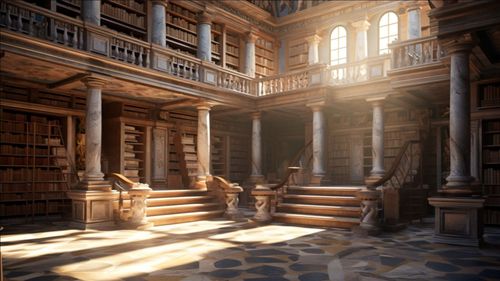The Mystery of the Library of Alexandria: A Beacon of Ancient Knowledge
Feb 02, 2024 · 2 mins read
0
Share

The Library of Alexandria, often hailed as the world's greatest library, was the epicenter of ancient wisdom and learning. Pretty big claim, I know, but you may be surprised why it's true...
Save
Share
Founded in the 3rd century BCE by Ptolemy I Soter, the library was part of a larger research institution, the Mouseion, which was dedicated to the Muses, the Greek goddesses of arts and sciences.
Save
Share
The library boasted a collection so vast, it aimed to house a copy of every book in the world. Think of it as the ancient precursor to the modern internet, a repository of all known knowledge.
Save
Share
Scholars at Alexandria did groundbreaking work. Eratosthenes calculated the Earth's circumference with surprising accuracy, and Hero invented the first steam engine.
Save
Share
The process of gathering texts was relentless. Ships docking in Alexandria were searched for books, which were seized, copied, and the originals stored in the library, while copies were returned to the owners.
Save
Share
The library wasn't just for storage; it was a vibrant intellectual hub. Scholars from across the world gathered here to discuss, debate, and generate new knowledge.
Save
Share
Its destruction remains a mystery shrouded in legend. While popular belief blames Julius Caesar's fire during his war in Alexandria, others suggest it declined gradually over centuries.
Save
Share
The loss of the Library of Alexandria is considered one of the greatest cultural tragedies in history. The knowledge lost could have potentially changed the course of human advancement.
Save
Share
The library's spirit lives on in today's institutions. Its commitment to preserving and advancing knowledge laid the groundwork for modern libraries and universities.
Save
Share
The Library of Alexandria, with its rich history and tragic demise, serves as a reminder of the fragility of knowledge and the importance of preserving our cultural heritage for future generations.
Save
Share
0